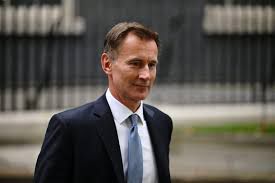Brexiteers had expected to coast along, a flourishing British economy unencumbered by those bothersome European taxes. Unfortunately, the past months have proven to be a sobering awakening to reality. The Bank of England has prognosticated a long recession for the United Kingdom; the symptoms of which are already evident: unemployment rate is rising and salaries are struggling to match the rising prices. All of this feeds into the current inflation sitting at 11.1%, the highest it has ever been in the UK since 1981. The situation seems dire: electricity and gas prices rising have played a large role in contributing to and accelerating the effects of the inflation crisis. Economists had not foreseen such rapid growth yet one wonders with gas prices have risen by 130% and electricity by 66% whether it was not inevitable.
What has the inflation impacted? Notably, the inflation crisis has had a great effect on the UK economy and markets as they struggle to make way; for example on the 14th of November, the Paris stock exchange, in a historic moment, overtook the City’s after comparing the combined market capitalisation according to an index compiled by Bloomberg. In order to try and stem the damage, Chancellor of the Exchequer Jeremy Hunt has shortened the two-year government household aid to six months and many foresee worse cuts to come. Why is the UK specifically targeted by such high inflation? Many point to external factors such as the Covid crisis in which countries had different economic and political policies which enabled some countries to return to production faster than others. One can also point to the ongoing war in Ukraine started by Russian President Vladimir Putin as the primary reason behind the rising energy prices and the general worsening economic environment.
Nevertheless, these are external factors and if one is to understand Britain’s inflation, the perceived weakness and incompetence of the UK government would be a good place to start. The ‘mini-budget’ as proposed by Liz Truss’ cabinet had enormous ramifications for the stock exchange in London, provoking panic in the markets. Moreover, the short turnover and the disastrous residency of Truss has not helped confidence in the UK economy, also undermining confidence about the sustainability of government debt. Prime Minister Rishi Sunak’s Cabinet needs to restore confidence, and inspire ingenuity in order to stem the perceived weakness of the British government. Effective and pragmatic solutions are to be found in the crisis and inflation are to be tempered. Finally, many also point to Brexit as a determining factor for the weakening and ensuing isolation of the British economy.
Raise in taxes and budget cuts are what is expected of Hunt’s announcement tomorrow. Current Prime Minister Rishi Sunak announced the need for decisive measures in order to fight against inflation. Hunt has just announced tens of billions in tax rises and spending cuts today in front of Parliament. Inflation is most felt in the freezing of tax thresholds and cuts concerning aid to energy bills. Another consequence will be the rise of the National Living Wage increasing from 9.50£ an hour to 10.42£ in April for over twenty-threes in April, including a freeze on tax thresholds and cuts on energy aid. Hunt has acknowledged the recession yet staunchly assured that his plan would help the UK to rebuild its failing economy. Many are sceptical and were waiting on a clear and efficient vision for the economy. OBR, the Office for Budget Responsibility has released a fiscal outlook on the situation and the analysis determines that the growth in living standards the UK has enjoyed for the past near-decade has been all but completely decimated. It remains to see whether this inflation will truly prove to be Britain Achille’s heel however the fact remains that extreme measures have to be taken, quickly and with confidence if the UK is going to survive its current economic crisis.






0 Comments